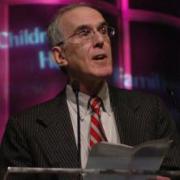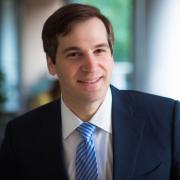2020 Fink Bioscience Symposium Speakers
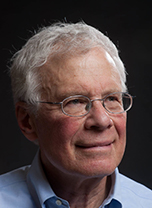
Harvey Lodish
Keynote Speaker Harvey Lodish
For many years research in my laboratory has focused on basic aspects of molecular and cellular biology of systems highly related to human disease. In 1989 we reported the cloning of the erythropoietin receptor, and this has led to a long and ongoing set of projects on the activation of and signal transduction by the erythropoietin receptor in erythroid progenitor cells, and the regulation of transcription, apoptosis, cell division, and enucleation during erythropoiesis. Much of this work has been done in collaboration with colleagues at Children’s Hospital Boston, in part supported by an NIH Program Project Grant now in its 30th year. In the last 10 years we have generated in culture human red blood cells that have on their surface monoclonal antibodies that inactivate a variety of toxic substances, or receptors that bind and remove unwanted materials from the blood. Red cells that have on their surface any of several covalently linked foreign or proteins induce immune tolerance and T cell anergy rather than an immune reaction, offering promise for novel treatments of several autoimmune disorders. Clinical trials by Rubius Inc. based on this work will be initiated this year. Beginning in 1995 we cloned adiponectin, a new adipocyte- produced hormone that potently enhances glucose and fatty acid metabolism by muscle, and a family of adiponectin homologs; current work focuses on characterizing the adiponectin receptors and intracellular signaling pathways. In parallel we have been elucidating the roles of microRNAs and long noncoding RNAs in regulating hematopoiesis and fat cell development and metabolism. I pride myself on my ability to collaborate successfully with a broad array of basic scientists, physician scientists, and clinicians. I am also very proud of the careers and accomplishments of the over 200 MD, PhD, and MD/PhD students and fellows I have trained over the past 50 years. Two received both the Nobel Prize and the Lasker Award and seven have been elected to the US National Academy of Sciences and/or the National Academy of Medicine. I have mentored 23 female scientists who had small children when they were in my laboratory and all have gone on to brilliant careers.
Image
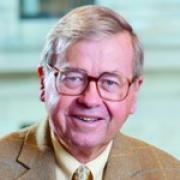

George W. Carmany III
Suite 936
50 Congress Street
Boston, MA, 02109
(617) 542-5918
george@carmany.com
George W. Carmany III ’62
George Carmany is a graduate of Amherst College, a director of the Macquarie Infrastructure Company, New York, NY; and is a senior advisor to Brown Brothers Harriman and Company; Essex Woodlands Health Ventures; EnGeneIC Ltd., a biotechnology company in Sydney, Australia; and The Asia Link Group of Beijing, PRC. He retired as a director of Sun Life Financial, Toronto, Canada in 2010, and served until 2005 as chairman and CEO of Helicon Therapeutics, a biotechnology company founded by the Cold Spring Harbor Laboratory, Roche Pharmaceuticals and OSI Pharmaceuticals.
Carmany is the past chairman of the New England Medical Center; a member of the President’s Circle of the National Academies; a trustee and member of the Executive Committee of Bentley University; past vice president of the Alumni Council of Amherst College; and past chairman of the Board of Associates of the Whitehead Institute for Biomedical Research. He is married to the former Judith Jermain Lawrence, and they are the parents of two children, Bill, of Los Angeles, Calif., and Elizabeth of N.Y.
Carmany, together with Gerald R. Fink ’62, are the founders and organizers of the annual Gerald R. Fink ’62 Bioscience Symposium.
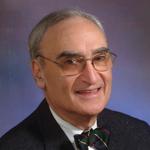
Gerald R. Fink
Whitehead Institute/MIT
9 Cambridge Center
Cambridge, MA, 02142
(617) 258-5215
gfink@wi.mit.edu
Gerald R. Fink ’62
Gerald R. Fink ’62 is the Margaret and Herman Sokol Professor and the American Cancer Society Professor of Genetics at Massachusetts Institute of Technology and a founding member of the Whitehead Institute. He was director of the Whitehead Institute from 1990 to 2001. His research focuses on the molecular biology of yeast and fungal infectious disease. Fink was the first to describe transformation in fungi—the stable uptake of DNA into the genome of yeast cells. He is past president of the Genetics Society of America. Among his many awards are the National Academy of Sciences Award in Molecular Biology, a Guggenheim Fellowship, the Medal of the Genetics Society of America, Emil Christian Hansen Award (Denmark), the Yale Science and Engineering Award, the Yale Wilbur Lucius Cross Medal, the 2001 George Beadle Award and the 2010 Gruber Award in Genetics. Fink has been elected to the National Academy of Sciences, the American Academy of Arts and Sciences, the Institute of Medicine and the American Philosophical Society. Fink has also founded two biotechnology companies, Myco Pharmaceuticals and Ironwood Pharmaceuticals.
Fink, together with George Carmany ’62, are the founders and organizers of the Gerald R. Fink ’62 Bioscience Symposium.
Richard Aronson '69
Ever since my time here at Amherst as a student, I have had a passion to explore and act upon the meaning of health and the nature of healing. What does it mean to be a healthy person, a healthy family, a healthy community, a healthy society? What does it mean to be open to healing? For those who ponder pursuing a health profession of any kind, and for those who have already made that decision, what pathways are available to fit and feed your skills, curiosity, ideals, and dreams? What practical steps does one take to make these aspirations come alive? I am here to stimulate such conversation and help our students along in their journey.
My own journey has been rich with challenge, learning, and a myriad of opportunities to promote the health of people and communities, starting with my own health (I'm still working on that!). At Amherst, I majored in Religion, helped organize the Amherst Amigos (a group of us who lived in rural Mexican villages in the summers), and had the good fortune to be involved in the founding of the Amherst ABC Program. Medical school (University of Rochester) and public health school (University of North Carolina) launched me on a career that has included clinical pediatric practice, public service, leadership as a public health physician (in Vermont, Wisconsin, and Maine), and teacher (most recently, at Hampshire College and UMass Amherst School of Public Health). I helped Amherst students start the Public Health Collaborative in 2009. I am now at a time of excitement and commitment to inspire a new generation of health professionals. I can't think of a better place to do that than right here at Amherst.
I continue to be moved and inspired by the curiosity, passion, critical thinking, and thirst for light and justice that thrive at Amherst College. Embracing the opportunity to be fully present here again, I turn to my favorite Amherst song: "In the love of Amherst hearts, abides her greatest glory. As the future still imparts, the old unchanging story. Youth and beauty, learning, faith. Bound by friendship's charter. To the College we have made. With eye and mind and heart."
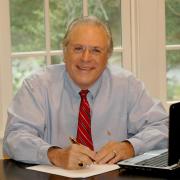
Robert Mignone ’62
StonebridgePsychiatric1@gmail.com
Robert Mignone ’62
Bob Mignone attended Amherst College, was an athlete, singer, and honors student, graduating cum laude. Then, leaving New England for a change of setting, he attended Duke Medical School, was an honors student and was one of five seniors elected to the Alpha Omega national medical honor society. He received several exclusive national awards of excellence, and graduated with honors with both BMSc and MD degrees.
By that time, his interest in comprehensive medicine was firmly set. He designed an education that integrated training in internal medicine (Yale), neurology (Cornell–New York Hospital; and NIH) and psychiatry (MGH, Harvard). At the final step (MGH) he was Chief Resident. Thereafter he stayed on to teach part time at MGH while he developed an innovative multi-specialty mental health group practice at both MGH and on Boston’s north shore in Salem (Boston North Shore Associates, Inc.).
Upon moving with his wife Susan to Florida in 1990, he again founded a multi-specialty mental health group practice (Gulf Coast Health Services, Inc.) All mental health disciplines were included, reflecting the gamut of general psychiatry. Adjustment education and lifestyle coaching went side by side with psychopharmacology. Spirituality in medicine and the power of faith in healing has been a particular passion. He is a member of the American Academy of Hospice and Palliative care.
His memoir, Ordinary Valor shared his surviving prostate cancer and then, six years later, kidney cancer. All turned out well. He is healthy, high energy and optimistic, arising early to work out at the gym and then spend a busy day at the office. Some of his work includes medical-legal consulting (expert witnessing). He published a book Psychiatric Injury, which stands as one of the few available reference sources for the legal and insurance communities dealing with disability and Workers Compensation.
Sinead Murphy ’12
sinead.murphy@childrens.harvard.edu
Sinead Murphy ’12
Sinead Murphy is a resident physician training in pediatrics at Boston Children's Hospital. Her research interest include long term outcomes for children after ICU care and primary care of children with medical complexity. She is involved in medical education and mentorship, hosting a summer internship for NESCAC students now in its third year.
At Amherst, she majored in chemistry and history, played on the women's ice hockey team, and spent summers participating in lab-based and clinical research. After college, Sinead trained as an wilderness EMT and spent a year on a volunteer ski patrol in Montana before attending Mayo Clinic School of Medicine. She plans to pursue a career in pediatric ICU medicine and medical education.
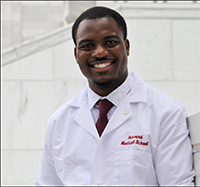
Niyi Odewade ’15
Niyi Odewade ’17
I am a current 2nd year medical student at Harvard Medical School in my clinical rotations at the Massachusetts General Hospital. While at Amherst, I majored in chemistry and was a member of the African and Caribbean Student Union, Black Student Union, Public Health Collaborative, and varsity football team. I also started a chapter of the Kidney Disease Screening and Awareness Program (KDSAP). After Amherst, I worked as a cardiology research assistant at Tufts Medical Center and continued to work with KDSAP as a national policy committee member.
My current activities include publishing a bibliometric analysis in global anesthesia that elucidates the extent and delivery of anesthesia care in low and middle income countries, beginning a research study that explores access to emerging oncological therapies across Medicaid programs, continuing my volunteer work as a junior clinician with the Crimson Care Collaborative, and furthering Harvard Medical School’s curriculum development as a member of the Health Equity Education Group. In addition, I am working alongside physicians from MGH and Uganda’s Mbarara University of Science and Technology (MUST) in strengthening the surgical capacity of Mbarara Regional Referral Hospital (MRRH). I aspire to practice surgery while working to address health inequities in local and global underserved communities.
Image
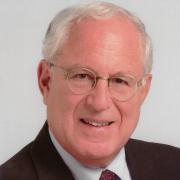

Marc Pohl
20126 Shaker Blvd.
Shaker Heights, OH, 44122
(216) 283-2954
marcpohl@att.net
Marc Pohl ’62
Dr. Marc A. Pohl is the former Head of the Section of Clinical Nephrology and Hypertension , Director of the Center for Blood Pressure Disorders, and Past Ray W. Gifford, Jr. M. D. Endowed Chair in Hypertension (2000–2018) in the Department of Nephrology and Hypertension at the Cleveland Clinic, and is currently a member of the Consultant Staff of the Department of Nephrology and Hypertension, Glickman Urological and Kidney Institute at the Cleveland Clinic, Cleveland, Ohio.
After graduating from Amherst College, Dr. Pohl received his medical degree from Western Reserve University School of Medicine, followed by medical internship and residencies at University Hospitals of Cleveland and at the Massachusetts General Hospital in Boston. He subsequently pursued nephrology fellowships at Boston University Medical Center and Boston City Hospital (under the late Norman G. Levinsky) and the Massachusetts General Hospital (under the late Alexander Leaf). He also served as Head of The Dialysis and Transplantation Programs Section of the USPHS from 1968–1970 where he was intimately involved in the supervision of federally funded home hemodialysis contracts and in the development and implementation of regional kidney transplantation organ sharing programs when kidney transplantation was moving from a research endeavor into the clinical arena. He has been with the Cleveland Clinic since 1973.
Dr. Pohl has been a co-investigator in a number of collaborative study groups and major clinical trials including the U. S. Collaborative Study Group of Adult Nephrotic Syndrome, the Lupus Nephritis Collaborative Study Group , the Collaborative Study Group , and the North American Adult Nephrotic Syndrome Study Group, these clinical research activities generating important advances in the treatment of patients with nephrotic syndrome, severe lupus nephritis, and overt Type I and Type II diabetic nephropathy.
He is the author or co-author of more than 100 articles and numerous abstracts and book chapters. Dr. Pohl actively participates as a faculty member in many national and international symposia and post graduate courses in nephrology and hypertension, is regarded as a leader in the field of renal vascular disease, and is widely recognized for his excellence in teaching and commitment to graduate and post graduate medical education. He is a past Chairman of the Post Graduate Education Committee of the American Society of Nephrology and served as the Co—Director of the American Society of Nephrology Board Review Course and Update from 2009—2011. For more than four decades he has trained scores of nephrology fellows at the Cleveland Clinic in concert with an active clinical practice in nephrology and hypertension and has been listed in Best Doctors in America since 1992 and America’s Top Doctors since 2000.
Kipp Weiskopf ’07
Weiskopf began as a Whitehead Fellow in October 2019. He earned a B.A. in biology from Amherst College in 2007, an M.Phil. in genetics from the University of Cambridge in 2008, and then entered Stanford University School of Medicine, where he earned his M.D./Ph.D. in 2016. Weiskopf completed his residency in internal medicine in 2018 and will finish a fellowship in medical oncology at Dana-Farber Cancer Institute in 2021.
The Weiskopf laboratory studies the interaction between cancer and macrophages, cells of the innate immune system that can engulf and destroy pathogens via phagocytosis. The goal of the Weiskopf laboratory is twofold. First, they aim to identify the genes and signaling pathways that regulate macrophage activation against cancer. Second, they aim to develop therapies that stimulate macrophages to attack and eliminate cancer.
